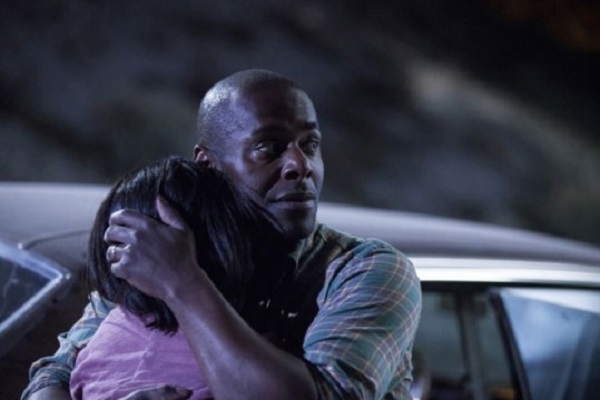The Leftovers, Season 1, Episode 2, “Penguin One, Us Zero”
Written by Damon Lindelof & Kath Lingenfelter
Directed by Peter Berg
Airs Sundays at 10pm EST on HBO
While the pilot was almost pure set up, and in this mostly disappointing second episode we have a further muddling of that set-up, what has at least become clearer now is that despite its literary origins, The Leftovers is definitely shaping up to be, for better or worse, Lost’s direct successor.
There are no extended flashbacks (although there are flashbacks), no smoke monster, no strangers in an isolated setting, but the structure of a supernatural mystery, and tiny character advancements while interacting sideways with that mystery, is still intact. Also, in a way, people in The Leftovers—neighbors, whole families—have become strangers to each other, even if they weren’t before. Characters like Laurie and Tom have taken on new personae in this brave new, post-incident world, and everyone must re-learn who it is they are, while we meet them for the first time, too. In this sense as well, the vibe is strong.
The question is: will this structure work again without the novelty factor? Can it be transposed onto a totally new situation, on a much darker network, with a co-writer more known for his observational nuance than his vivacious pulp? In this episode, we don’t get a strong sense that it will. As cryptic sub-plot after cryptic sub-plot are piled on, and the few strands from the pilot that grounded us in the world, like Nora Durst, like the allegory of the dogs, get swept up in the piles of speculation the show insists on building, a supreme feeling of being adrift swiftly pervades.
There is definitely something intriguing about the idea that the “Mystery Man” may have been part of Kevin’s imagination. This is a man under a ton of stress, and people in this world must be cracking up daily, considering their circumstance. A phenomenon resembling the rapture would be, if nothing else, a schizophrenic’s paradise. Unfortunately, the idea has an out-of-nowhere execution. Nothing in the pilot really prepared us for this thought, and there is too much evidence to the contrary for it to be the basis of an entire episode.
Most offensively, Kevin himself never really wonders if what he saw was real, which is crucial for us to delight in this type of plot. Even when his bagels disappear into the toaster (a really genius idea with so much connection to the premise) all he does is anger. The moment isn’t big, or desperate, or frenzied enough for us to really feel for him. Even his beginning dream, the perfect opportunity for clarification and peek into his interior, is given the obtuse, hodgepodge treatment—the last thing a show like this needs more of.
Yet, the creators know this, and tease us with it. Kevin’s father tells him to be vulnerable at the end, to let people in. These are the self-conscious words of a writer spelling out his character problems, instead of actually doing the work to solve them—a Lost specialty. Next episode, we think, the issue will be addressed, and then the next, and the next, then suddenly we are in a non-denominational church in heaven being told, well… you get the idea.
Still, the formula is irresistible at times. Meg (Liv Tyler) chopping down the tree at the end is a strong, heightened moment. Her facial expression sells it, and the writing helps us understand at least the basics of her motivations. This is a woman who lost her mother and can’t just move on. Her pain is real; her abandoned fiancé’s pain is real; it’s a relatable oasis in an alien desert. People in our world, too, crack under loss and choose to disappear. We root for her.
On the other hand, the Holy Wayne plot, which hinges on a random girl being “important” to a seriously questionable faith healer, alone threatens to wash away all of that good will. Not to mention having to deal with Kevin’s father’s schizophrenia possibly being supernatural in nature as well. We now, in the second episode, have at least four major mysteries going on, none of which are particularly character-based, but are instead are simply presented to go “ooh” to, or more appropriately, “huh?”
Strange, in the first episode, I accepted that I would never find out what caused 2% of the population to disappear—but now, my expectation has changed completely. This is beginning to look like Kevin’s some kind of “chosen one” to figure out what’s happening. I just hope there’s time to change the expectation back, before the inevitable withholding, “it was all about the journey” ending. Good thing there’s a Damon Lindelof precedent for time travel, too.


